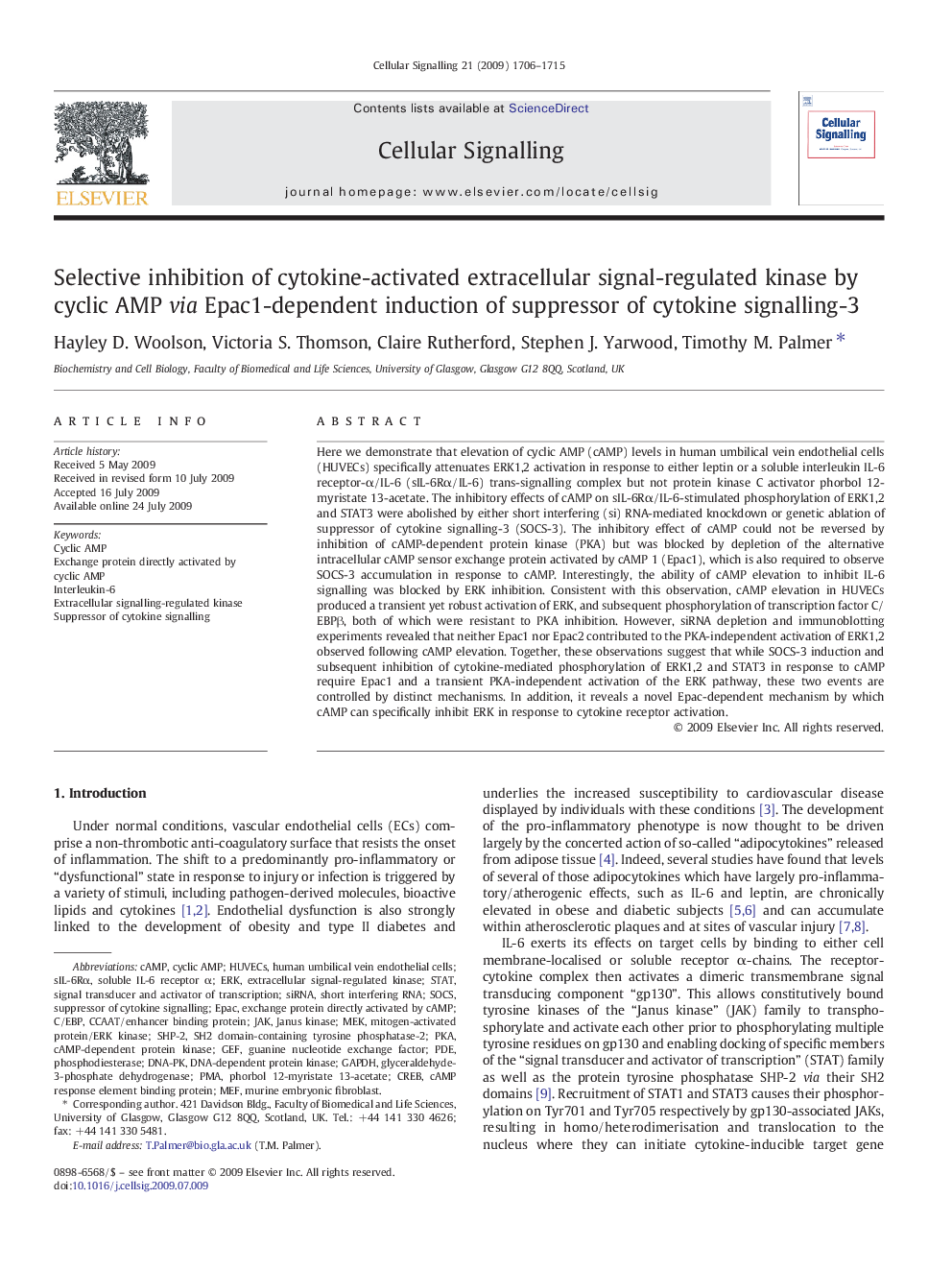| Article ID | Journal | Published Year | Pages | File Type |
|---|---|---|---|---|
| 1963806 | Cellular Signalling | 2009 | 10 Pages |
Here we demonstrate that elevation of cyclic AMP (cAMP) levels in human umbilical vein endothelial cells (HUVECs) specifically attenuates ERK1,2 activation in response to either leptin or a soluble interleukin IL-6 receptor-α/IL-6 (sIL-6Rα/IL-6) trans-signalling complex but not protein kinase C activator phorbol 12-myristate 13-acetate. The inhibitory effects of cAMP on sIL-6Rα/IL-6-stimulated phosphorylation of ERK1,2 and STAT3 were abolished by either short interfering (si) RNA-mediated knockdown or genetic ablation of suppressor of cytokine signalling-3 (SOCS-3). The inhibitory effect of cAMP could not be reversed by inhibition of cAMP-dependent protein kinase (PKA) but was blocked by depletion of the alternative intracellular cAMP sensor exchange protein activated by cAMP 1 (Epac1), which is also required to observe SOCS-3 accumulation in response to cAMP. Interestingly, the ability of cAMP elevation to inhibit IL-6 signalling was blocked by ERK inhibition. Consistent with this observation, cAMP elevation in HUVECs produced a transient yet robust activation of ERK, and subsequent phosphorylation of transcription factor C/EBPβ, both of which were resistant to PKA inhibition. However, siRNA depletion and immunoblotting experiments revealed that neither Epac1 nor Epac2 contributed to the PKA-independent activation of ERK1,2 observed following cAMP elevation. Together, these observations suggest that while SOCS-3 induction and subsequent inhibition of cytokine-mediated phosphorylation of ERK1,2 and STAT3 in response to cAMP require Epac1 and a transient PKA-independent activation of the ERK pathway, these two events are controlled by distinct mechanisms. In addition, it reveals a novel Epac-dependent mechanism by which cAMP can specifically inhibit ERK in response to cytokine receptor activation.
